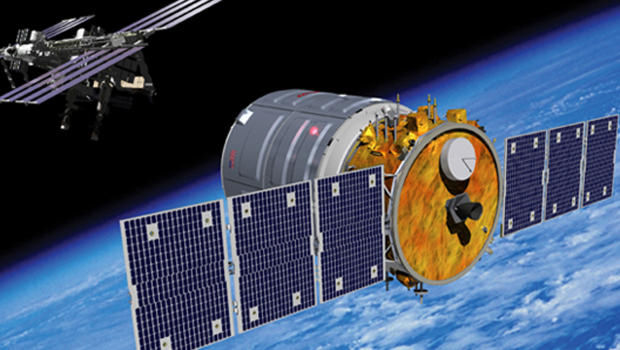-
Tips for becoming a good boxer - November 6, 2020
-
7 expert tips for making your hens night a memorable one - November 6, 2020
-
5 reasons to host your Christmas party on a cruise boat - November 6, 2020
-
What to do when you’re charged with a crime - November 6, 2020
-
Should you get one or multiple dogs? Here’s all you need to know - November 3, 2020
-
A Guide: How to Build Your Very Own Magic Mirror - February 14, 2019
-
Our Top Inspirational Baseball Stars - November 24, 2018
-
Five Tech Tools That Will Help You Turn Your Blog into a Business - November 24, 2018
-
How to Indulge on Vacation without Expanding Your Waist - November 9, 2018
-
5 Strategies for Businesses to Appeal to Today’s Increasingly Mobile-Crazed Customers - November 9, 2018
Rocket blasts off with supplies for International Space Station
A United Launch Alliance Atlas V rocket lifts off from launch complex 41 at the Cape Canaveral Air Force Station Dec. 6, in Cape Canaveral, Fla.
Advertisement
Strong winds also delayed Friday’s attempt, and rainy weather postponed the initial launch bid on Thursday.
The capsule – Cygnus – carries more than 3500kg of food, clothing, computer gear, spacewalk equipment, science experiments and other supplies.
The company is still redesigning the Antares rocket and it won’t be ready for months yet, so instead, Orbital Sciences will be using the tried-and-tested Atlas V delivery system instead, at no extra cost to NASA.
The liftoff Sunday atop the Atlas V rocket went smoothly, with no flaws or problems after a launch delay of several days due to bad weather.
The vehicle pair of new UltraFlex solar arrays were fully deployed as planned and providing the requisite power to the vehicle and orbital communications was established.
“Everything looks great in this early stage of the mission”.
“We want to get going”, Frank DeMauro, a vice president with NASA’s contracted shipper, Orbital ATK, said shortly before liftoff.
The capsule it is carrying, which is expected to arrive on Wednesday, will be the first United States shipment to the station since April. Cygnus will remain attached to the station for approximately 50 days before departing with roughly 5,050 pounds (2,300 kilograms) of disposable cargo for a safe, destructive reentry over the Pacific Ocean.
Cygnus is named the “SS Deke Slayton II” in memory of Deke Slayton, one of the America’s original seven Mercury astronauts.
The launch marks Orbital’s fourth scheduled mission to the orbiting outpost, as part of a $1.9 billion contract with NASA to deliver necessities to the astronauts living in space. Atlas is adjacent to new commercial crew access tower. Orbital ATK bought another company’s rocket, the veteran Atlas V, for this supply mission.
First enhanced Orbital ATK Cygnus commercial cargo ship is fully assembled and being processed for blastoff to the ISS on December 3, 2015 on an ULA Atlas V rocket. Amateur Astronomers Assoc of Princeton, AAAP, Princeton University, Ivy Lane, Astrophysics Dept, Princeton, NJ; 7:30 PM. Its next cargo ship, launched two months later, ended up in the Atlantic following a failure of its Falcon rocket.
Advertisement
Much of the scientific cargo will be used in research by the station astronauts.




























